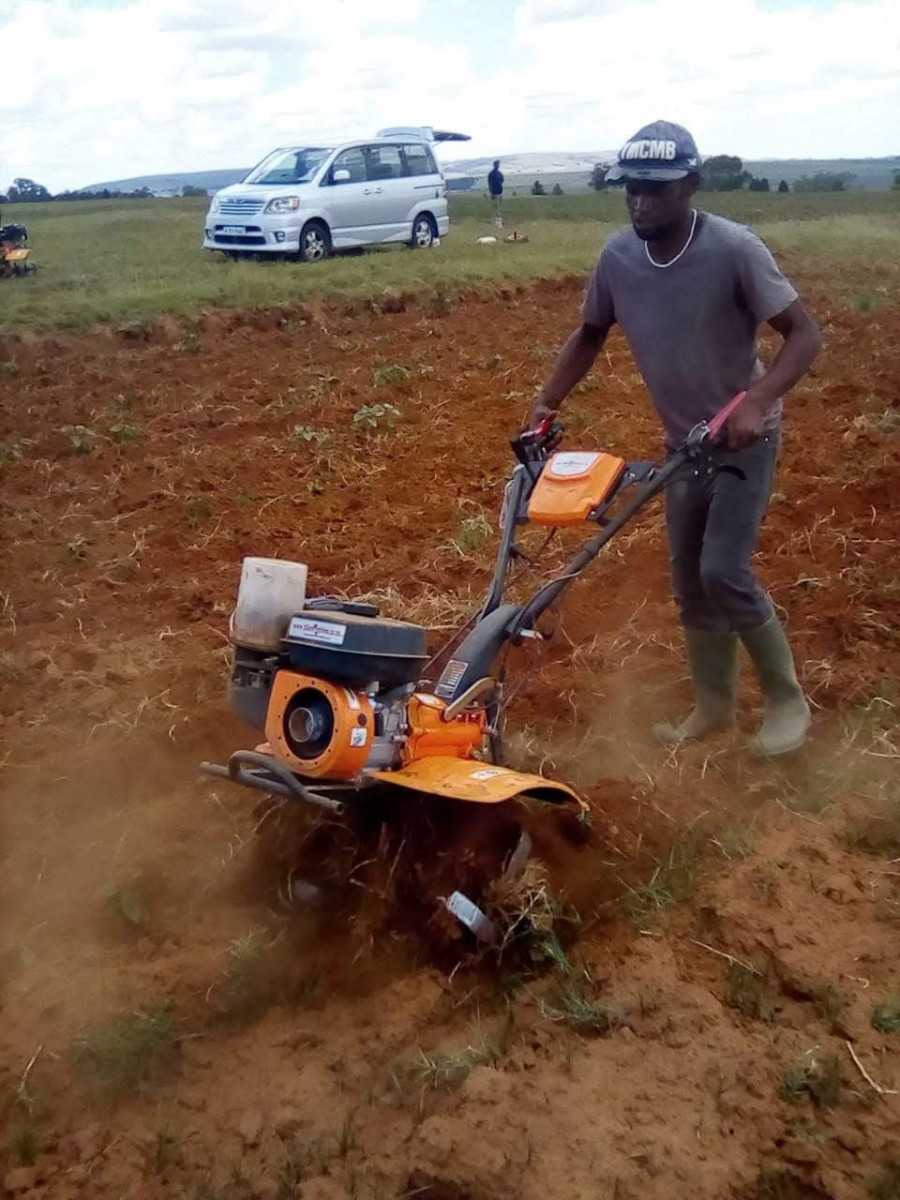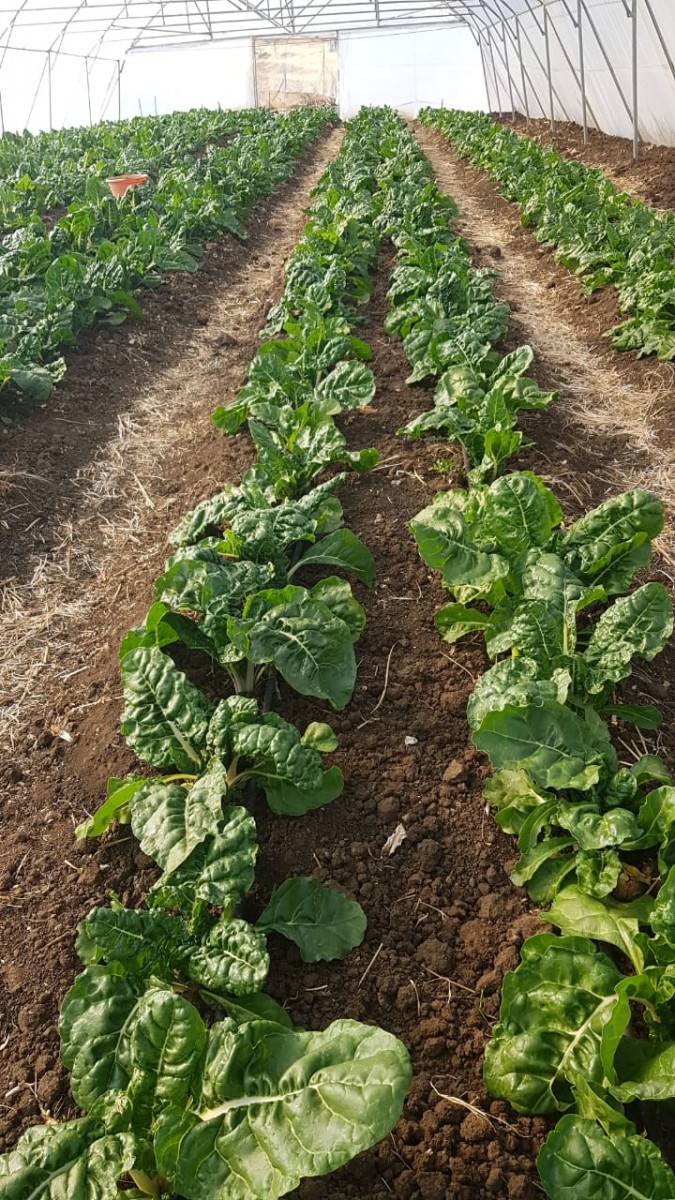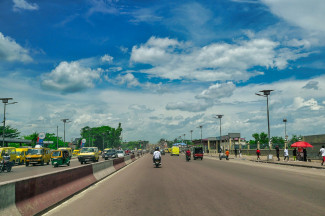Support efforts include new tools, from the tangible to the abstract
Mama Kotoane grows red cabbage, sweet peppers, mushrooms and more on a small plot of land in Berea district in Lesotho. The 56-year-old started growing such things in 2007, having put most of her efforts before that into the raising of pigs and chickens.
Today she has her brand Piggery & Green, gesturing to where she started and where she is now, cultivating a host of vegetables and supplying local supermarkets, schools and restaurants.
But she also has bigger plans.
“I am thinking to build something unique. I want to produce throughout the year,” she said, referencing her current seasonal harvesting. She also has a plan to sell farming equipment like tillers, considering the lack thereof in her neighborhood.
What Mama Kotoane grows has shifted over the years, with a major change happening when she received greenhouses and hail netting as part of international support projects for agriculturalists in the country, including through a partnership between the government and the Enhanced Integrated Framework (EIF).
“I remember in 2012 I lost a lot of money. I expected a lot from my watermelon harvest but due to climate change I lost it. I didn’t give up, and then I was introduced to protected farming,” she said.
“I got the first greenhouse in 2018 and my life changed,” she added. Mama Kotoane was able to increase her yields and try growing new items, including mushrooms, spinach and lettuce. Her second two greenhouses came via the World Bank, and she now has three employees and a delivery car.

Image credit: Mama Kotoane
TO MARKET
Lesotho’s economy relies on agriculture, with about 45% of employment in the country depending on it, and almost all rural households with access to land are involved in some form of vegetable or fruit production. To improve the landlocked country’s limited economic prospects, supporting rural small farmers is a must.
That support can range from the provision of needed equipment, like Mama Kotoane’s greenhouses and hail nets, to the development of an infrastructure so as to meet export standards, to improving marketing and branding.
These efforts aim to link agricultural value chains so such trade can flow smoothly from fertile soil to supermarket shelves across borders.
“We are trying to get there by using our institutions. So we are trying to build up our standards. We have local projects concerned with infrastructure deployment. We are trying to diversify our markets,” said Mosiuoa Tello, M&E Officer with EIF’s implementation unit in Lesotho.
EIF has distributed150 greenhouses and hail nets to small farmers, and hosts trainings on topics ranging from how to package vegetables to business development.
CHALLENGES
Mama Kotoane attended a few of these trainings, including how to keep records and how to cultivate with a greenhouse.
But being a farmer always has its challenges, she noted, from her current struggles with snails to access to water. She wishes she had a better irrigation system than her method using storage tanks and watering cans.
She has competition too, with others armed with larger plots and hundreds of greenhouses, and market saturation because all Lesotho’s produce is seasonal.
“COVID-19 hit me in the stomach, but it helped me to think like an entrepreneur. I thought if I could preserve these vegetables during the pandemic maybe I could have worked much better. I think I need to have processing or a preserving project,” she said, noting the loss in her sales due to restrictions on movement.
It is this kind of forward thinking that has brought Mama Kotoane to where she is today.
A recently concluded training for small greenhouse operators covered record keeping and business management, as well as post-harvest handling. Participants requested more support related to determining pricing.
Tello said, “We are trying to commercialize the production,” referring to the government and EIF’s work to help transform agricultural items to exports. Trainings across many of Lesotho’s districts mean to spur a business-oriented mindset, even if that might only mean a small increase in production, a reduction in post-harvest losses or more sales at local markets.
For Mama Kotoane, she is continually trialing other products, from okra to cucumbers, and looking to make her own farming process easier and more efficient.
“I focus on horticulture because I love it,” she said.

Image credit: Mama Kotoane
If you would like to reuse any material published here, please let us know by sending an email to EIF Communications: eifcommunications@wto.org.


